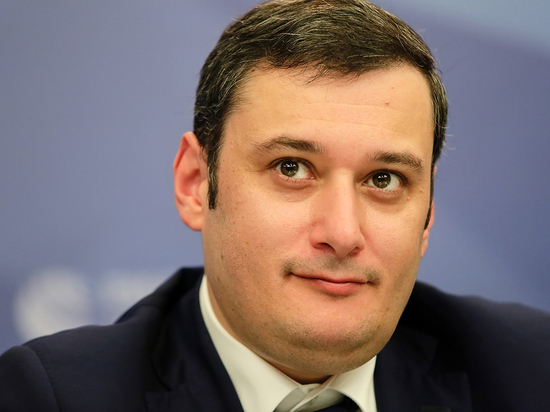The State Duma Committee on Information Policy will protect biometric data
On June 11, the final press conference of the Chairman of the State Duma Committee on Information Policy, Alexander Khinshtein, was held in the press center of the Parliamentary Newspaper. Summing up the results of the work both for the session and for the convocation as a whole, Alexander Khinshtein spoke in the most detail about the so-called law on the “landing” of IT giants on Russian territory.

Photo: Natalia Muschinkina
The new law obliges foreign companies that somehow work in the IT sector, whose audience is Russians in the number of at least 5 million people, to meet three conditions. First: to open a branch (representative office) on the territory of the Russian Federation, which could solve the issues of moderation of the relevant part of its content, interaction with government agencies, the media, citizens, and be a representative in court. Second: open your accounton the RKN portal. And third: place a feedback mailbox on your resources. For non-compliance with these standards, sanctions, more precisely, restriction or blocking of traffic, are not imposed immediately. First, a warning is placed in search engines that the link leads to the offending resource, and if this does not work, restrictions are imposed on the use of Russian users ‘ data and the conduct of financial transactions.
According to Khinshtein, IT giants after the entry into force of this law, most likely, will not leave Russia – simply for economic reasons. Facebook’s and Facebook’s revenue in our market last year was about $ 1.5 billion. In the course of recent similar stories in Turkey, Austria and India, the digital giants finally agreed to comply with local legislation. The same large companies that have already opened representative offices in Russia, according to the deputy, only won in terms of making profits.
Among other legislative norms, in the development of which the State Duma Committee on Information Policy took part, its chairman highlighted some of them. The first are the norms that ensure stable reception of the Internet and communication signal in settlements with a population of up to 100 people. The second – introducing the concept of social networks, the need to monitor their content and remove its illegal part. The third – inaccording to which numbers are blocked, the provision of communication for those in places of deprivation of liberty is stopped. The fourth – related to the protection of honor and dignity, if the attempt on them took place on the Internet. Fifth-prohibiting the provision of communication services, if the subscriber disguises his real number, say, foreign, under the number of the Moscow region, the Russian bank, law enforcement agencies.
Speaking in general about the policy and approaches to the regulation of the IT sector, Alexander Khinshtein stressed several times that he is an undisputed supporter of its clear regulation. But not in the sense of introducing certain censorship restrictions or dictates, but in the sense of applying to it the same simple and understandable rules that apply in other areas, protecting not only the honor or security of citizens, but also their property rights. And, since it was already possible to see what the consistent implementation of the principle of complete freedom in the network leads to, now it remains only to continue the work begun to introduce this element into an understandable framework.
As for the specific examples given by the presenters, about the proposals to introduce laws regulating the organization of distance procedures in the field of education and ethical standards for ticktockers, the chairman of the information policy committee expressed unequivocally that these are not issues that should be regulated by federal law.
Another issue from the field of IT security, which Alexander Khinshtein noted as a very important state task, was already referred to the work plans of the next convocation. It was about the protection of biometric data, the use of which in the near future, according to the deputy, will expand, as well as the number of scammers who will try to forge them. Here, the deputy considers his main political task to be all-out opposition to various supporters of the free circulation of such data.

